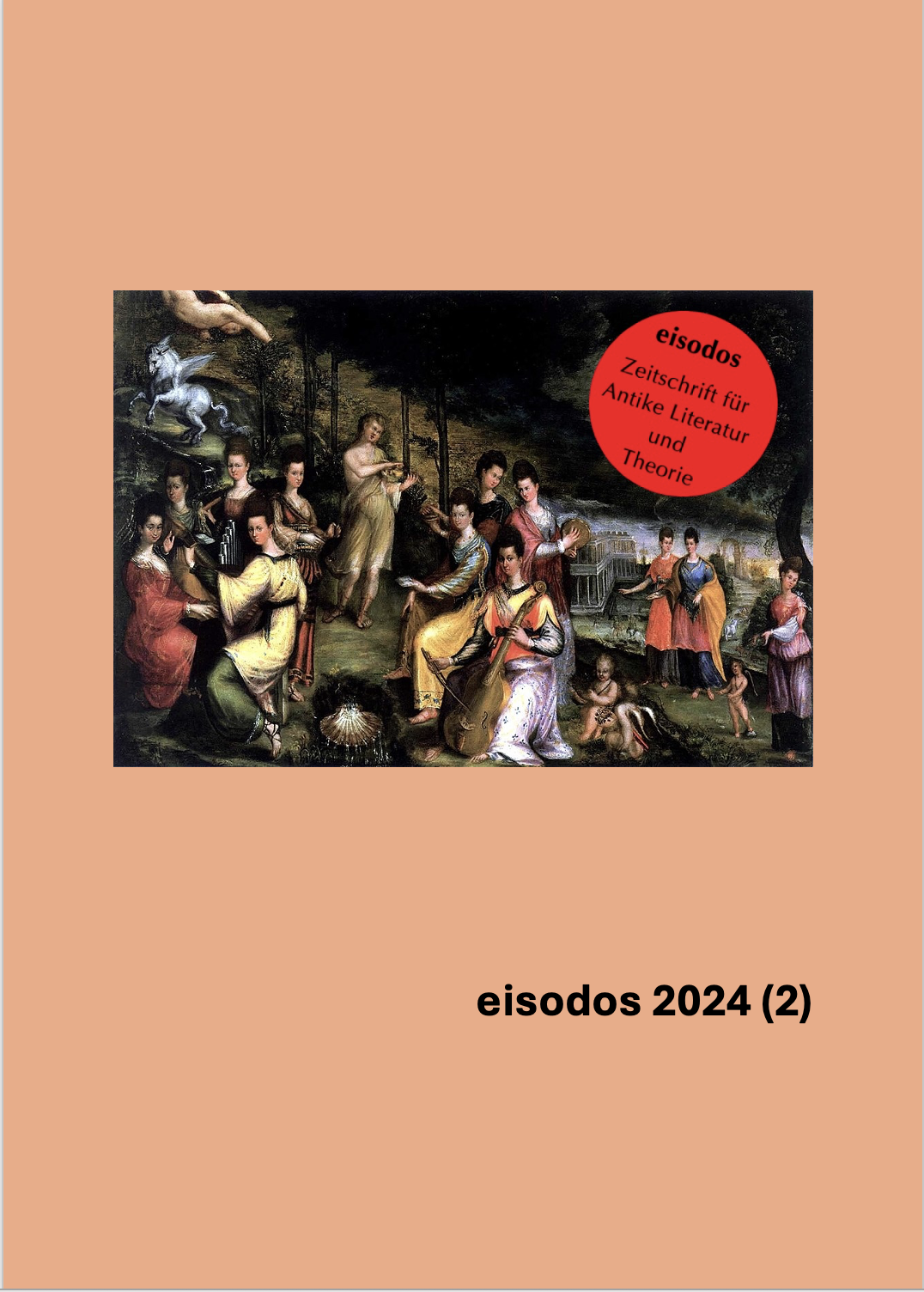“Silence becomes a Woman”: Briseis’ Voice and Agency in Homer’s Iliad and Pat Barker’s The Silence of the Girls
Briseis’ Voice and Agency in Homer’s Iliad and Pat Barker’s The Silence of the Girls
Keywords:
Feminist literature, Voice, Agency, Slavery, Classical ReceptionAbstract
Recently, more women writers have started addressing the classical tradition, rewriting female characters in feminist narratives that receive, interpret, and influence the ancient tradition from women’s perspectives. Starting from a receptive, feminist, and narratological framework, this article analyses how Pat Barker’s The Silence of the Girls (2018) transforms Caroline Alexander’s translation (2015) of Homer’s Iliad. The central question concerns the ways in which Barker receives and interprets the Iliad’s gendered gaps and silences, and how she manages to give a voice to the Homeric women – particularly Briseis – in The Silence of the Girls, considering the highly restrictive situation in which they live. Adding a female perspective to a tale of male triumphs and suffering, Barker gives a voice to the silenced so they may emerge from the heroes’ shadows and tell their own stories to posterity.
Downloads
Published
Issue
Section
License
Copyright (c) 2024 Marthe Jansen

This work is licensed under a Creative Commons Attribution 3.0 Unported License.
Autorinnen und Autoren, die in eisodos einen Beitrag veröffentlichen, bleiben in Besitz des Copyrights, garantieren aber eisodos das Recht auf Erstpublikation. Mit der Publikation wird der Artikel einer Creative Commons Attribution License (CC BY) unterstellt, die es erlaubt, den Artikel unter vollständiger Nennung der bibliographischen Angaben (Nennung von Autorname und Erstpublikation in eisodos) mit anderen zu teilen.
Es steht den Autorinnen und Autoren frei, ihren Beitrag außerdem in anderen Medien (bspw. auf der universitären Homepage oder als Kapitel in einem Buch) in nicht-exklusiver Weise und unter Nennung der Erstpublikation in eisodos zu veröffentlichen.
Autorinnen und Autoren werden ausdrücklich dazu ermuntert, ihren Beitrag vor und während der Veröffentlichung in eisodos online zu diskutieren (bspw. auf ihrer eigenen oder der universitären Homepage). Dies führt zu produktivem Austausch und zu früherer Kenntnisname und Verwendung des im Anschluss daran in eisodos veröffentlichten Beitrags sowie der Verweisung auf ihn.


